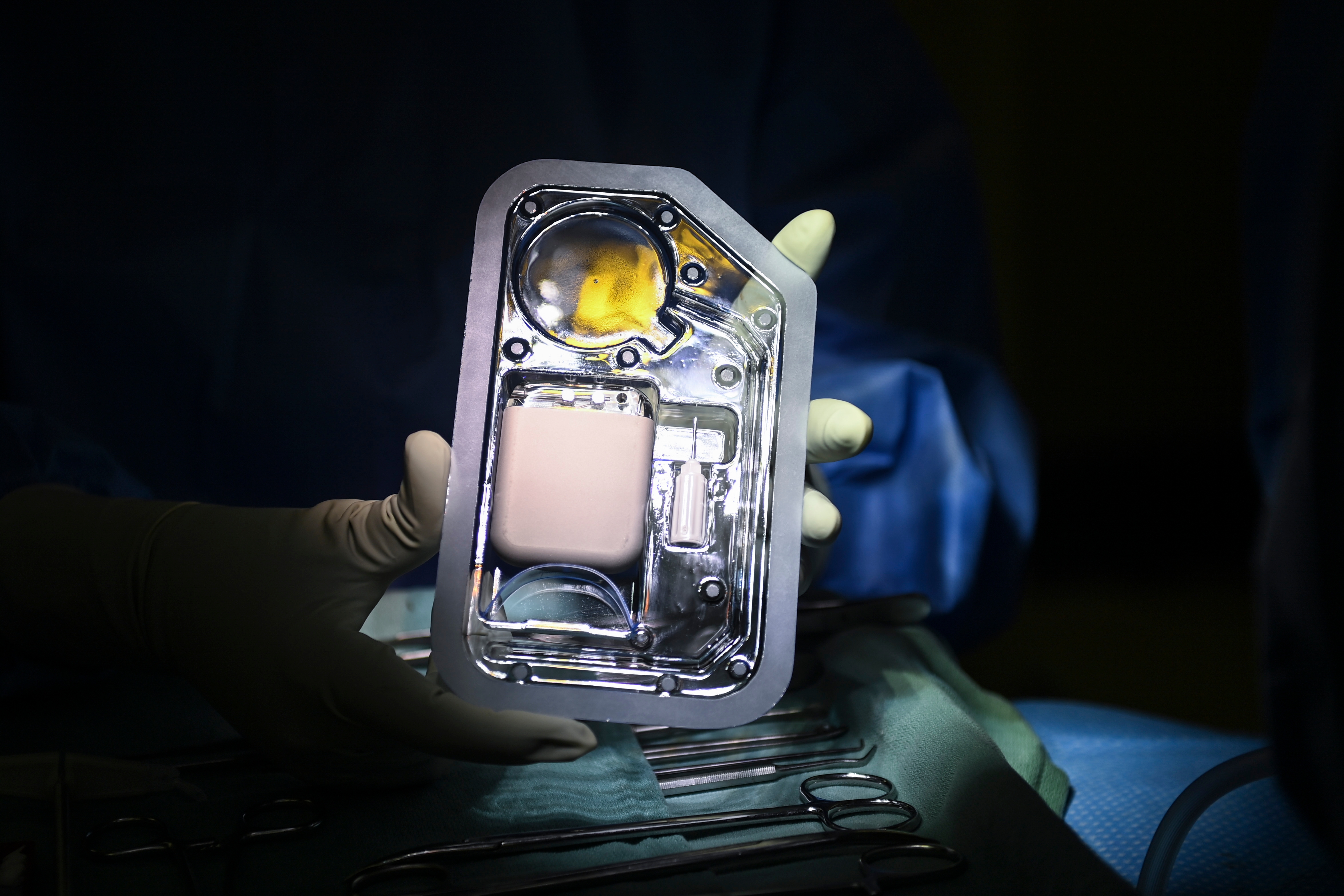Corewell Health First in State to Implant Device to Improve Mobility after Stroke
October 2, 2023
GRAND RAPIDS, Mich., Oct. 2, 2023 – Corewell Health™ has become the first and only health system in Michigan to implant a device intended to improve upper body mobility in patients who have experienced a debilitating stroke. In clinical trials, the Vivistim Paired VNS System, coupled with intensive rehabilitation therapy, has resulted in improved hand and arm function for stroke survivors.

The FDA-approved device, which was surgically implanted by surgeons at Corewell Health Butterworth Hospital in Grand Rapids, delivers vagus nerve stimulation (VNS) during rehabilitation therapy. The pairing of rehabilitation exercise with VNS creates or strengthens nerve connections in healthy areas of the brain, which increases the effectiveness of the therapy and has been shown to improve upper limb function.
Occupational therapists in West and Southeast Michigan have been specially trained to work with patients and use a remote control to deliver a gentle pulse to the vagus nerve while the patient performs a specific task, such as lifting their hand above the shoulder or picking up a ball. Additionally, patients can use a special magnet to activate the system for home-based therapy sessions.
Clinical trials found that pairing the Vivistim System with intensive rehabilitation therapy resulted in two to three times more hand and arm function for stroke survivors than rehabilitation therapy alone. Patients who experienced an ischemic stroke between six months and 10 years ago may be candidates for this technology.
“Survivors of an ischemic stroke who have not regained significant arm and hand mobility don’t have many options,” said Sanjay Patra, M.D., division chief of neurovascular neurosurgery at Corewell Health in Grand Rapids, which has been a Joint Commission-certified Comprehensive Stroke Center since 2017. “This device, coupled with intensive rehabilitation therapy, has the potential to significantly improve the quality of life for these patients.”
Historically, VNS implants have been used to treat other nerve-related conditions such as epilepsy. In a minimally invasive surgery, the device, which is smaller than the palm of a hand, is placed under the skin in the upper left chest.
Every year approximately 800,000 people in the United States have a stroke and up to 60% of these survivors suffer from persistent impaired upper limb function six months after the stroke.
About Corewell Health™
People are at the heart of everything we do, and the inspiration for our legacy of outstanding outcomes, innovation, strong community partnerships, philanthropy and transparency. Corewell Health is a not-for-profit health system that provides health care and coverage with an exceptional team of 60,000+ dedicated people—including more than 11,500 physicians and advanced practice providers and more than 15,000 nurses providing care and services in 22 hospitals, 300+ outpatient locations and several post-acute facilities—and Priority Health, a provider-sponsored health plan serving more than 1.3 million members. Through experience and collaboration, we are reimagining a better, more equitable model of health and wellness. For more information, visit corewellhealth.org.

